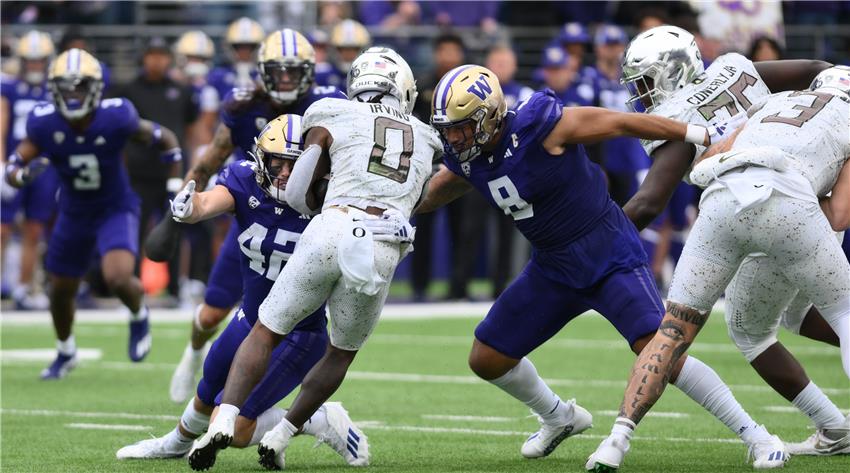
Is Fantasy Football Hurting Your GPA? How to Balance Fun and Focus
Fantasy football has become more than a casual game for sports fans. On many campuses, it's practically a rite of passage: students join leagues, manage teams, and obsess over player stats like seasoned analysts.
But as excitement builds around weekly matchups, draft strategies, and trade negotiations, one thing often takes a back seat: academic performance. The question isn't whether fantasy football is fun; it's whether the time and mental energy it demands are slowly dragging down your GPA.
When Fantasy Football Becomes a Distraction
The thrill of checking injury reports or waiver wire updates between classes may seem harmless at first. However, the hours spent analyzing matchups or managing multiple leagues can easily rival the time required for academic reading or paper writing. It's easy to fall into the trap of thinking, "I'll just spend five minutes tweaking my roster," only to realize that a full hour has passed and your assignment deadline hasn't moved. If you've ever caught yourself saying, "I wish someone could just write a paper for me," that's a red flag. It signals that your hobbies are overtaking your responsibilities.
The Psychology Behind the Obsession
Fantasy football taps into some powerful psychological triggers: competition, reward, and social status. For students, it provides a structured form of escapism during stressful semesters. Managing a fantasy team offers a sense of control when exams, group projects, or unclear syllabi feel overwhelming. It's also highly social. League chats, memes, trash talk, and side bets create a sense of belonging, which can be hard to walk away from, especially if you're trying to reduce screen time to focus on studies.
Academic Impact: What the Research Suggests
While academic studies on fantasy football are limited, research on similar online distractions paints a clear picture. According to a 2021 study published in Computers in Human Behavior, students who engage heavily in online gaming or content consumption show a significant decline in GPA over time. The addictive nature of real-time updates, like those in fantasy football apps, mirrors that of social media and can impair focus, reduce study time, and delay sleep, which further affects cognitive function.
Moreover, multitasking between schoolwork and fantasy football management leads to what's called "task-switching costs." A 2018 Stanford study revealed that frequent task switching lowers productivity and retention, even when users believe they are managing both effectively.
Signs Your Fantasy League Is Hurting Your Studies
Not every fantasy manager is at risk of academic decline. But if you notice the following signs, it might be time to re-evaluate:
- You skip lectures to watch Thursday Night Football or check player stats.
- You delay homework or studying to make trades or set lineups.
- Your screen time spikes drastically during the NFL season.
- You're falling behind in group work or forgetting submission deadlines.
- You've experienced a drop in GPA since joining multiple fantasy leagues.
Recognizing these signs early can prevent long-term consequences for your academic performance.
Strategies for Reclaiming Focus
The goal isn't to quit fantasy football altogether but to manage your time more intentionally. Here are practical ways to keep your hobby from overshadowing your academic goals:
1. Set Limits on Fantasy Time
Allocate specific windows during the week to manage your fantasy team. Treat it like any other hobby with structure and schedule. Use tools like Focus Mode or app timers to prevent unplanned distractions.
2. Link Rewards to Study Goals
Gamify your own productivity. For example, only allow yourself to make fantasy trades after you've completed a study session or submitted an assignment. This turns fantasy football into a reward, not a distraction.
3. Mute Notifications During Study Hours
Real-time alerts are a major focus killer. Muting them during lectures or study blocks can drastically reduce the urge to check scores or make impulsive changes to your team.
4. Reduce the Number of Leagues
Managing multiple leagues multiplies distractions. Stick to one league with close friends or peers; it maintains the social benefits without overwhelming your time and energy.
5. Use Academic Tools for Support
If you're falling behind, don't hesitate to seek academic support. University writing centers, tutoring services, and academic planning workshops can help you build structure. Even tools or platforms that offer writing assistance can help offload basic tasks so you can focus on deeper learning.
Making Room for Both: Why Balance Matters
Fantasy football, like most hobbies, can offer healthy relief from academic pressure. It's fun, social, and even intellectually engaging. But when unmoderated, it can easily edge out the responsibilities that brought you to college in the first place. Finding balance doesn't mean giving up what you enjoy. It means being intentional about when and how you enjoy it.
This also reflects a larger lesson in time management that will follow students beyond graduation. Whether you're managing projects in a future workplace or parenting while navigating responsibilities, learning to balance passion and performance now will serve you well.
Final Thoughts
Fantasy football is not inherently bad for students. In fact, it can help develop decision-making, strategy, and social skills. But when your GPA starts falling faster than your fantasy ranking, it's time to reassess. The key is not to eliminate your hobby but to structure your academic life in a way that leaves space for it without sacrificing performance. You don't have to bench your love for the game; you just need to manage your academic playbook better.
